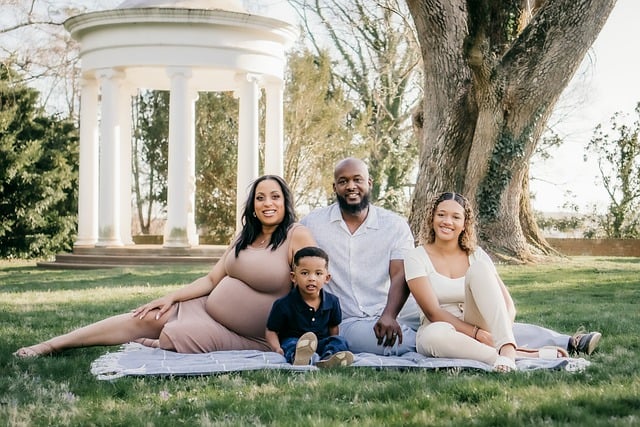A question we often hear at our clinics is whether birth control can make someone infertile. The reassuring answer is no, contraceptives do not cause infertility. Many individuals worry about whether the pill or other forms of birth control can reduce their fertility. The reality is that most contraceptive methods, including the pill, have no long-term impact on your fertility once you stop using them.
If you still have questions, here’s a rundown from our fertility experts on birth control and its relationship with fertility.
Understanding Birth Control Methods
It’s natural to wonder if birth control, which prevents pregnancy, might interfere with your natural ability to conceive. To clarify, different contraceptive methods function in various ways:
- Barrier Methods: These include condoms, diaphragms, and cervical caps, which physically block sperm from entering the cervix.
- Short-Acting Contraceptives: Options like the pill, mini pill, patches, or vaginal rings use synthetic hormones to inhibit egg release, prevent sperm from reaching the cervix, and reduce the likelihood of embryo implantation.
- Long-Acting Contraceptives: Methods such as IUDs, implants, or injections offer similar benefits but last longer.
You might wonder if long-term use of the pill can impact fertility, but the answer is still no. Both short and long-acting methods are fully reversible, meaning they don’t lead to infertility. Short-acting methods exit your system quickly, allowing for ovulation to resume within days or weeks after stopping.
How Birth Control Works
The primary function of birth control is to delay fertility and prevent pregnancy. While contraception temporarily halts the processes needed for conception, it does not cause infertility. Once you stop using it, your natural fertility returns. Most hormonal contraceptives, aside from barrier methods and the copper IUD, use synthetic hormones like estrogen and progesterone, which:
- Prevent the ovaries from releasing eggs.
- Thicken cervical mucus to hinder sperm movement.
- Thin the uterine lining to impede embryo implantation.
These effects are reversible, and while it may take up to three months for regular cycles and ovulation to return, your fertility is not permanently affected.
Factors Influencing Fertility
It’s important to note that hormonal contraceptives can cause changes in your menstrual cycle, such as lighter or irregular periods. This might mask underlying fertility issues, which could lead to concerns about whether birth control impacts fertility. However, in most cases, the birth control itself isn’t the culprit; it may simply have been hiding existing conditions.
Age, health, and lifestyle play significant roles in fertility. Your fertility peaks in your teens and 20s, gradually declining after age 30 and more rapidly after 35. Conditions like endometriosis, polycystic ovary syndrome, and thyroid disease can also impact fertility. Making healthy lifestyle choices, like reducing alcohol intake and quitting smoking, can help improve your chances of conception.
Temporary Effects of Birth Control
The synthetic hormones in contraceptives can have various effects, some beneficial and others less so. While many take birth control to regulate periods and alleviate hormonal symptoms like acne, some may experience unwanted side effects like headaches or weight gain. The good news is that these effects are temporary and usually resolve once you stop taking the contraceptives.
Delayed Return to Fertility
After discontinuing birth control, some individuals may notice that their periods take a few months to normalize, a phenomenon known as post-birth control amenorrhea. If you’re planning to conceive, it may be wise to stop birth control three months beforehand. If your cycles don’t return regularly after this time, it’s essential to consult your healthcare provider for a fertility assessment.
Fertility Preservation Options
If you’re considering delaying pregnancy and are concerned about age-related fertility decline, you might explore fertility preservation. This involves storing your eggs or sperm for future use, offering peace of mind as you plan for family.
Considerations for Long-Term Birth Control Users
The duration of birth control use doesn’t affect its impact on fertility; whether you’ve been on it for a month or a decade, it won’t render you infertile. However, age-related fertility decline should be taken into account when deciding to stop.
Natural Family Planning Methods
While many experts recommend against avoiding birth control due to fertility concerns, there are alternative options. Barrier methods and natural family planning can effectively reduce pregnancy chances without hormonal contraception. Barrier methods, such as condoms, are quite effective when used correctly, and natural family planning can also be a viable option.
If you’re pondering your next steps in family planning, it’s always a good idea to consult with a healthcare professional.
For more insights on fertility after experiencing miscarriages, check out this blog post. And if you want to explore home insemination, Make a Mom has an excellent at-home insemination kit. For comprehensive information on pregnancy and IVF, visit Johns Hopkins Fertility Center.
Summary
In conclusion, birth control does not lead to infertility. Most methods are reversible and allow for the resumption of natural fertility once discontinued. Factors like age, health conditions, and lifestyle choices play a more significant role in fertility than the use of contraceptives. If you have concerns about your fertility or are considering starting a family, consult a specialist for personalized advice.

